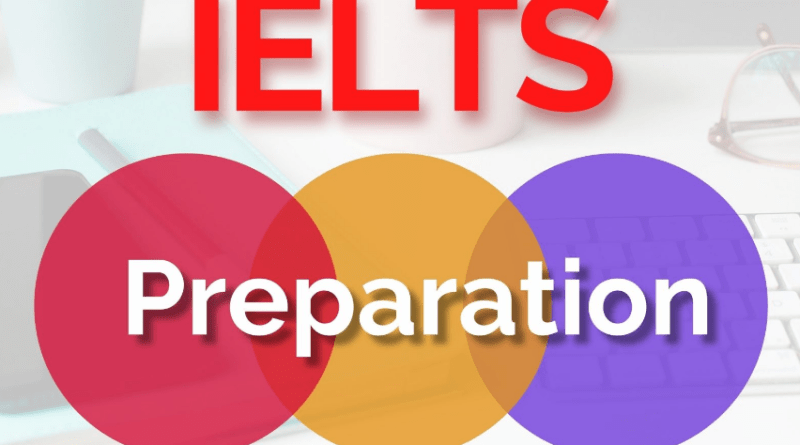How to prepare for IELTS at home without coaching
IELTS (International English Language Testing System – an English Language proficiency test developed by the British Council in partnership with IDP Education and Cambridge Assessment English) is a widely used test of English language ability that is essential for many academic and professional endeavors.
Passing the IELTS exam is an important accomplishment whether you want to study abroad, work in an English-speaking country, or are just curious about your language abilities. Although many people choose coaching sessions, you can effectively study for the IELTS at home with the appropriate strategy. We will walk you through the process of self-preparing for the IELTS step-by-step in this thorough guide, ensuring that you are prepared to succeed.
How may IELTS preparation without coaching be done at home? Here are some pointers to aid your independent study for the IELTS exam:
- Recognize the IELTS Format and Scoring System
Learn about the IELTS exam format before starting your preparation. The test is divided into four sections: speaking, writing, reading, and listening. Recognize the layout of each section and the evaluation standards. With this information, you can modify your study strategy to focus on the particular skills needed for each stage.
- Determine Your Level of Proficiency
Consider taking a practice IELTS exam to determine where you stand. Your skills and shortcomings will be revealed by this diagnostic evaluation. Analyze your performance to identify which passages need greater focus and repetition.
- Establish a Practical Study Schedule
Create a study plan that takes into account your everyday activities and obligations. Set aside specified times for each exam section. The key to success is consistency, so practice regularly rather than cramming. Your study schedule should be divided into weeks or months, with specific objectives for each time frame.
- Materials and Resources
Get hold of pertinent study tools, such as official IELTS practice exams, sample papers, and instruction manuals. Make use of online resources like articles, podcasts, and instructional videos to improve your comprehension of how the English language is used.
- Listening Exercises
The listening test measures your capacity to comprehend spoken English in a variety of settings. To effectively prepare: Active Listening: Participate in a range of English audio content, including podcasts, newscasts, and TED Talks. Pay close attention to the intricacies, supporting information, and essential themes.
Become proficient at taking brief notes as you listen by practicing this skill. This will help you remember crucial material for the exam. Take Full-Length Practice Tests: To imitate exam settings and enhance time management, take full-length listening practice tests on a regular basis.
- Reading Arrangement
Your comprehension abilities are evaluated in the Reading portion through a variety of texts. In order to ace this section: Reading Material Diversification: Read magazines, newspapers, and academic articles to expose yourself to a variety of themes and writing styles.
Practice identifying keywords and comprehending their context because doing so will help you find solutions more quickly. Develop your skimming and scanning skills by practicing them. Skimming involves swiftly scanning a text for the key concepts and scanning involves fast seeking for specific information.
- Writing and Editing
Your ability to effectively and eloquently communicate ideas is assessed in the writing portion. To write better, adhere to following guidelines: Analyze Model Essays: Examine sample essays to learn how ideas are put into order, arguments are made, and vocabulary is employed.
IELTS Writing consists of two tasks: Task 1 (report/letter) and Task 2 (essay). Both jobs should be thoroughly practiced to become familiar with the forms and standards. Request Feedback: Request that a native English speaker read your articles and offer insightful comments.
- Speaking Exercises
The Speaking portion tests your verbal communication skills. To confidently get ready: Regular Speaking: Have daily conversations in English, even if it’s only with yourself. This will help with confidence and fluency.
Take a Self-Video: Observe your pronunciation, grammar, and coherence throughout practice speaking sessions by recording them. Mock Speaking Exams: Practice your speaking skills with a friend or member of your family. Practice responding to a range of prospective inquiries.
- Practice Time Management
To improve your time management abilities, practice under time constraints frequently. Each section should have a timer set, and the goal should be to finish it within that time. By doing this, you may make sure that you’re used to the pace of the exam.
- Examine and Adjust
Spend some time after each practice test going over your results. Determine your areas of weakness and concentrate on developing those talents. Progress depends on regular evaluation and revision.
- Create exam-like circumstances
Take complete practice tests in the weeks before to your exam to mirror genuine exam settings. You’ll gain strength and experience less exam-related stress as a result.
- Remain consistent and inspired
It’s crucial to maintain consistency and motivation throughout the preparation process. Celebrate your accomplishments, no matter how minor, and maintain your good attitude despite difficulties.
Conclusion
Self-studying for the IELTS exam necessitates commitment, control, and a calculated strategy. You can successfully study for the exam from the convenience of your home by adhering to this thorough manual. Remember that the keys to success are perseverance, focused learning, and an optimistic outlook. You can obtain your desired IELTS score and open doors to interesting prospects on your own terms with the correct tools and perseverance.
We sincerely hope you enjoy it! Please feel free to contact Alpha Edu Abroad for assistance if you require it! Your admission to prestigious universities in the USA, Canada, the UK, Australia, Germany, and other nations will be ensured by our team of specialists from IIT Delhi, Cornell University in the United States, and IIM Ahmedabad.
Questions and Answers
Is it possible to study for the IELTS test without coaching?
Absolutely! Many applicants successfully study alone before taking the IELTS test. You can get the score you want if you put in the necessary effort, are dedicated, and practice often.
How can I create a home version of the testing environment? Time Yourself: Use a timer to replicate the test’s timing requirements while you practice each part. Quiet Environment: To simulate the focus needed for the test, practice in a quiet setting.
What sources exist for study materials? Online Resources: Several websites provide free study materials, practice exams, and advice. Popular options include IELTS Liz and LearnEnglish from the British Council.
Books: Invest in respected IELTS study guides that provide in-depth instruction and practice tests.
How can I manage my test-day phobia? Learn the location and regulations of the testing facility beforehand. Use relaxation methods, such as deep breathing. Embrace your preparation and concentrate on each section separately.
This post was originally published on: https://alphaeduabroad.com/ The link to the original post is: https://alphaeduabroad.com/blog/how-to- … our-guide/




